When it comes to maintaining a healthy lifestyle, understanding the importance of diet and nutrition is key. In this guide, we'll explore how to make informed food choices that not only meet your health needs but also satisfy your taste buds. You'll find tips on balanced meals, portion control, and incorporating a variety of nutrients into your daily routine. So let's dive in and empower you to take charge of your nutrition journeyâread on for more insights!

Patient Personalization
Personalized dietary plans significantly improve health outcomes for patients dealing with chronic conditions, such as diabetes, heart disease, or obesity. Tailored meal recommendations consider individual preferences, dietary restrictions, and nutritional needs, which promotes adherence and fosters positive lifestyle changes. Each plan should incorporate key components, such as macronutrient balance (carbohydrates, proteins, fats), micronutrient sufficiency (vitamins, minerals), and adequate hydration (aiming for at least 2 liters of water daily). Additionally, specific foods rich in essential nutrients should be emphasized, including vegetables (spinach, broccoli), whole grains (quinoa, brown rice), and lean proteins (chicken, tofu), to enhance overall health. Behavioral strategies, such as meal prepping or mindful eating, can be included to support sustainable habits. Regular follow-ups and adjustments to the plan ensure that evolving health conditions and preferences continue to be aligned with nutritional goals.
Dietary Goals
A comprehensive dietary guide emphasizes balanced nutrition, essential for overall health and wellness. It includes specific dietary goals such as reducing sugar intake, ideally below 25 grams per day for adults, to minimize the risk of chronic diseases like diabetes. Incorporating whole foods from all food groups, including fruits such as blueberries (rich in antioxidants), vegetables like spinach (loaded with vitamins), lean proteins such as chicken breast, and whole grains like quinoa, ensures adequate nutrient intake. Staying hydrated with at least eight 8-ounce glasses of water daily aids digestion and overall function. Regular meal timing, ideally every 3-4 hours, helps maintain stable energy levels and supports metabolic health. Monitoring portion sizes helps in weight management, where a standard serving of protein is typically 3 ounces. This guide tailors recommendations to specific conditions, such as a heart-healthy diet with low saturated fat, high fiber, and sodium restrictions, particularly beneficial for cardiovascular patients.
Meal Planning Tips
Meal planning is essential for maintaining a balanced diet, especially for individuals managing health conditions. Incorporating a variety of food groups ensures optimal nutrient intake, which is crucial for the immune system and overall wellness. For example, aim for a colorful plate featuring vegetables like spinach, carrots, and bell peppers, providing vitamins A and C. Whole grains, such as quinoa and brown rice, serve as excellent sources of fiber, promoting digestive health. Protein options, including lean meats, legumes, and nuts, support muscle maintenance and repair. Hydration is vital; aim for eight cups (roughly 2 liters) of water daily to aid digestion and nutrient absorption. Planning meals weekly helps to reduce food waste and allows for the inclusion of seasonal produce, enhancing flavor and nutrition. Utilizing a meal-prepping strategy can simplify weekday cooking, saving time and ensuring healthy choices.
Nutritional Education
Nutritional education plays a crucial role in managing health and promoting well-being, especially in patients with specific dietary needs. Key components include understanding macronutrients like carbohydrates (45-65% of daily caloric intake), protein (10-35%), and fats (20-35%). Important vitamins and minerals, such as Vitamin D and Calcium, are essential for bone health, with recommendations suggesting 600 to 800 IU of Vitamin D daily. Portion control is significant for weight management, where a typical serving size for fruits is approximately one medium piece or half a cup. Specific dietary guidelines, including the Mediterranean diet, emphasize whole foods, including fruits, vegetables, whole grains, and healthy fats, which can lead to better cardiovascular health. It is vital for patients to consult registered dietitians who can provide tailored advice, addressing individual health conditions like diabetes or hypertension, ensuring an informed approach to nutrition and lifestyle changes.
Contact Information
A comprehensive patient diet and nutrition guide serves as a crucial resource for individuals aiming to enhance their health through informed dietary choices. This guide includes contact information for registered dietitians and nutritionists who specialize in various conditions such as diabetes, hypertension, or weight management. Patients can reach out for personalized consultations or support. Additionally, local health clinics or hospitals may provide resources and workshops focusing on meal planning, nutrient-dense food options, and portion control. Reliable websites, such as the Academy of Nutrition and Dietetics, also offer valuable insights and meal suggestions tailored to specific dietary needs. The guide emphasizes the importance of maintaining an open line of communication with healthcare professionals for ongoing support and tailored advice.
Letter Template For Patient Diet And Nutrition Guide Samples
Letter template of healthy eating habits and lifestyle changes for patients.
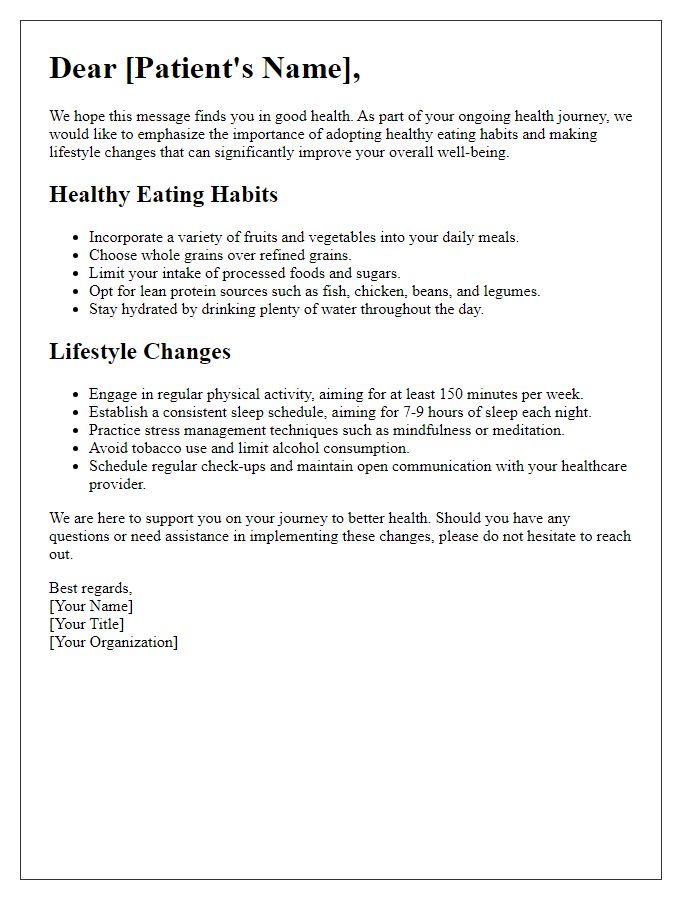

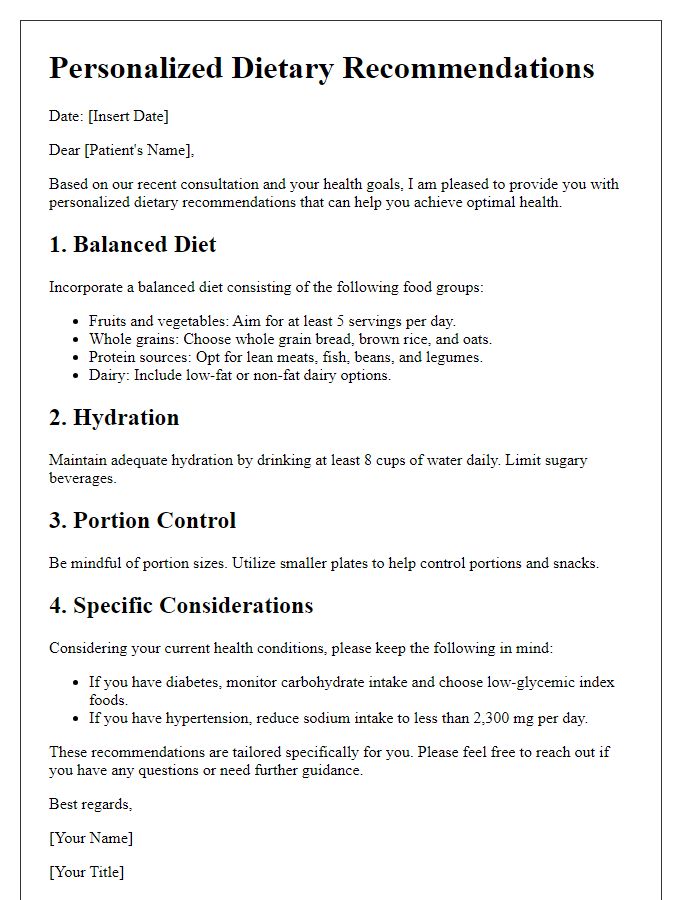
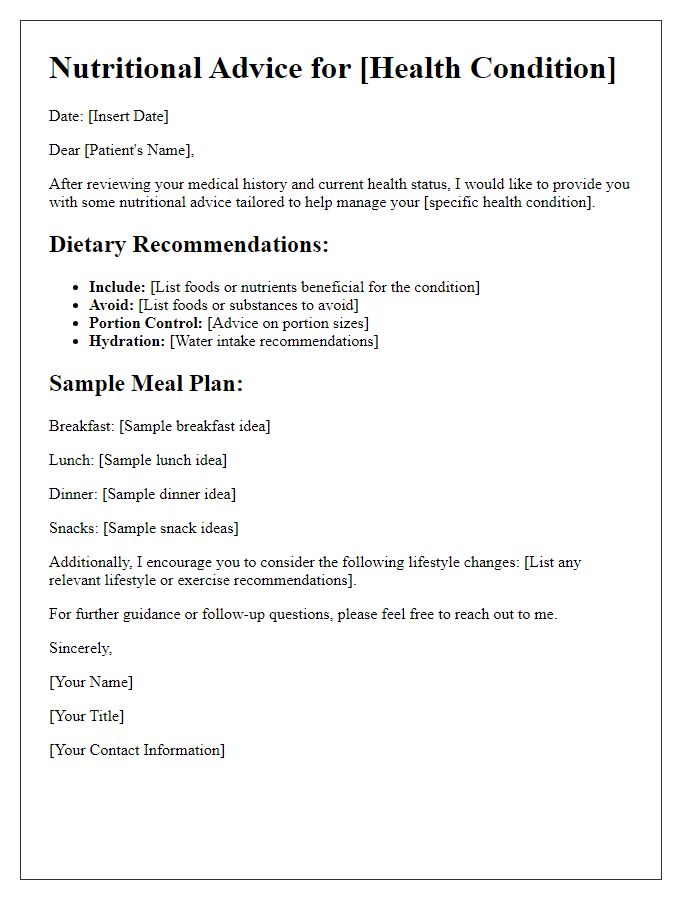
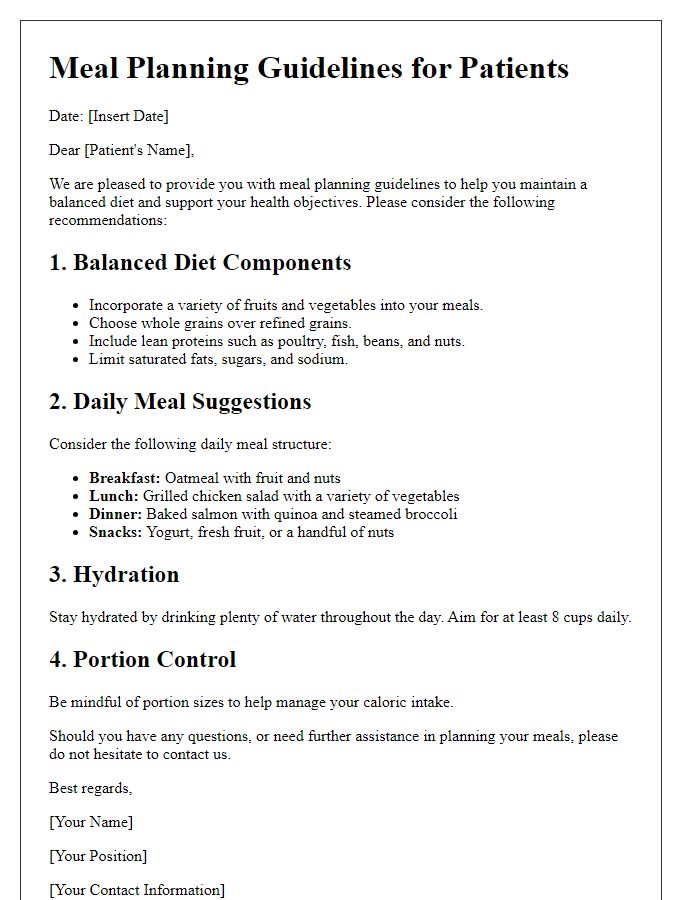
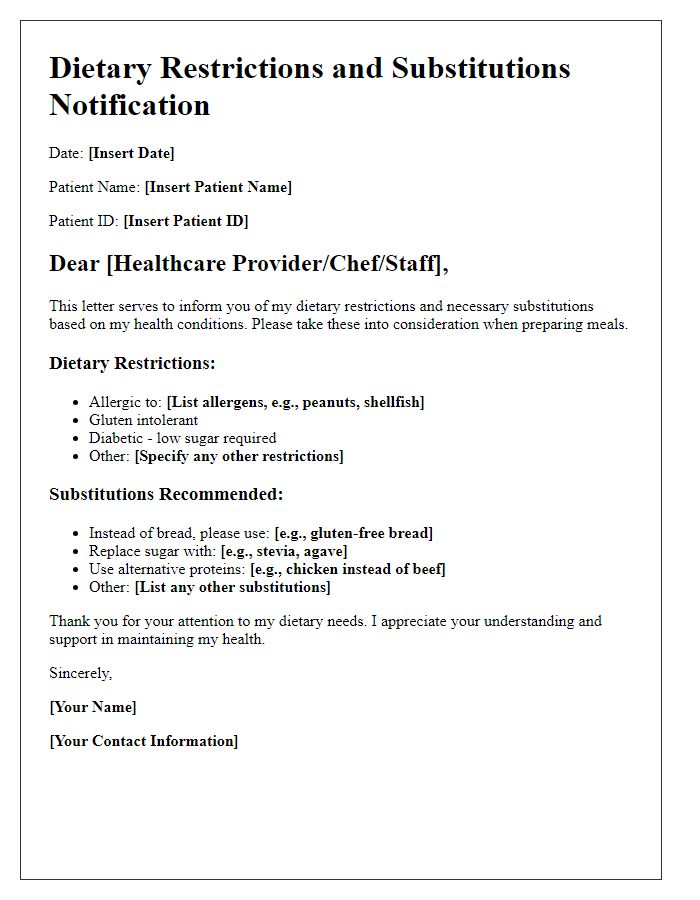
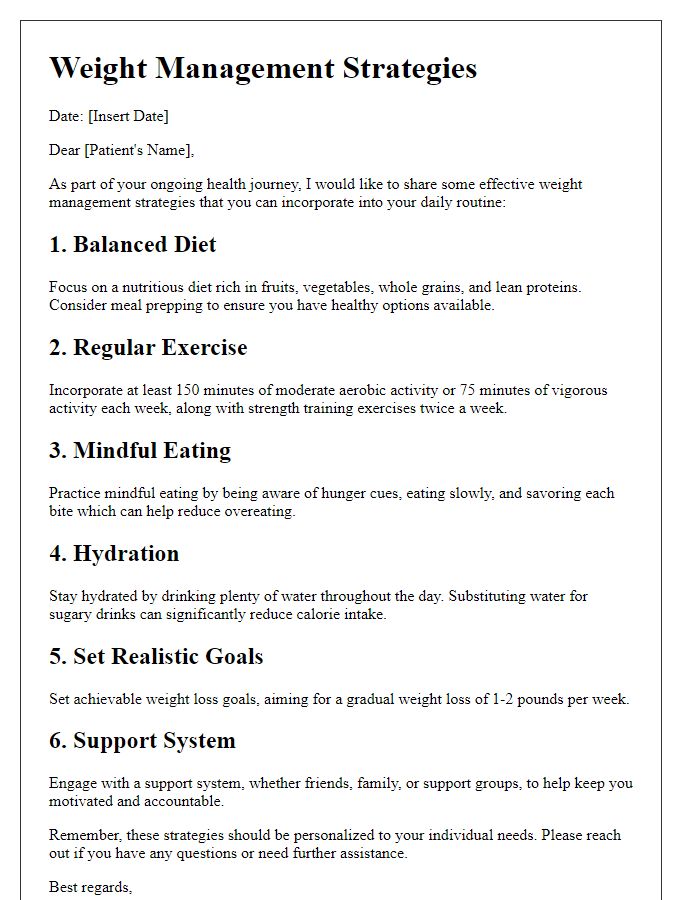
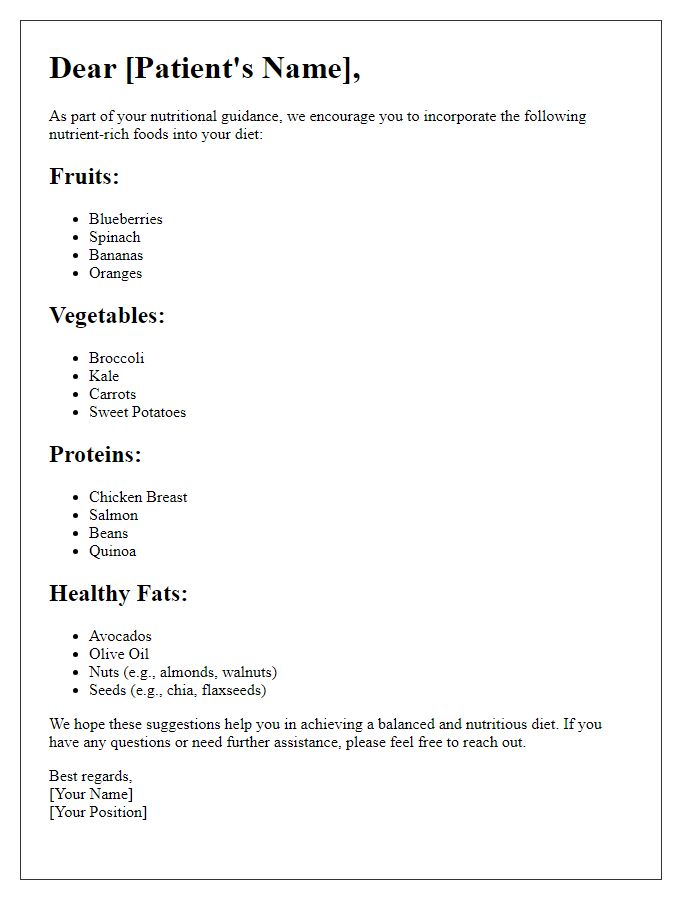
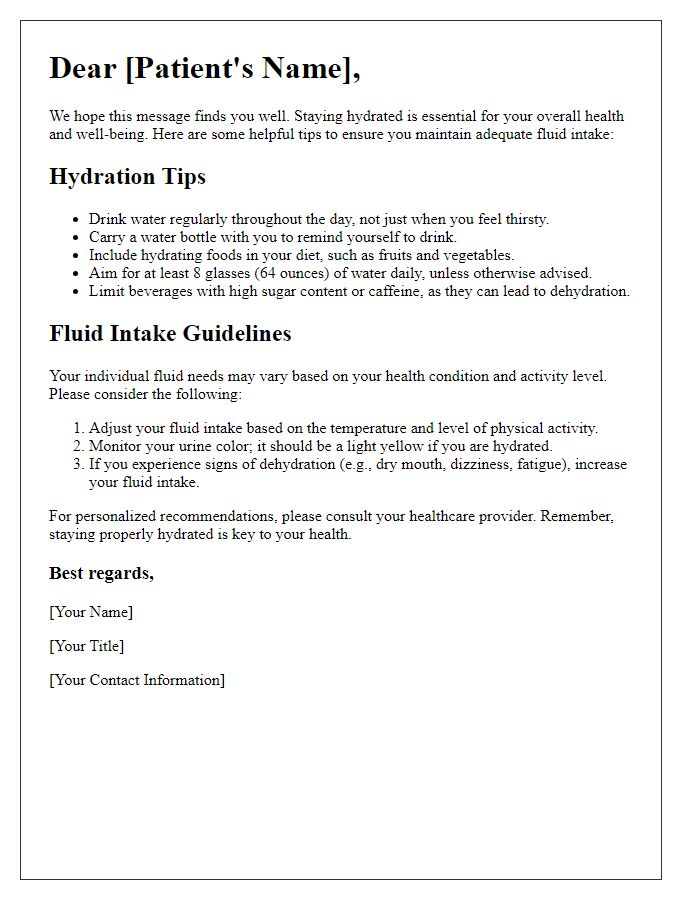
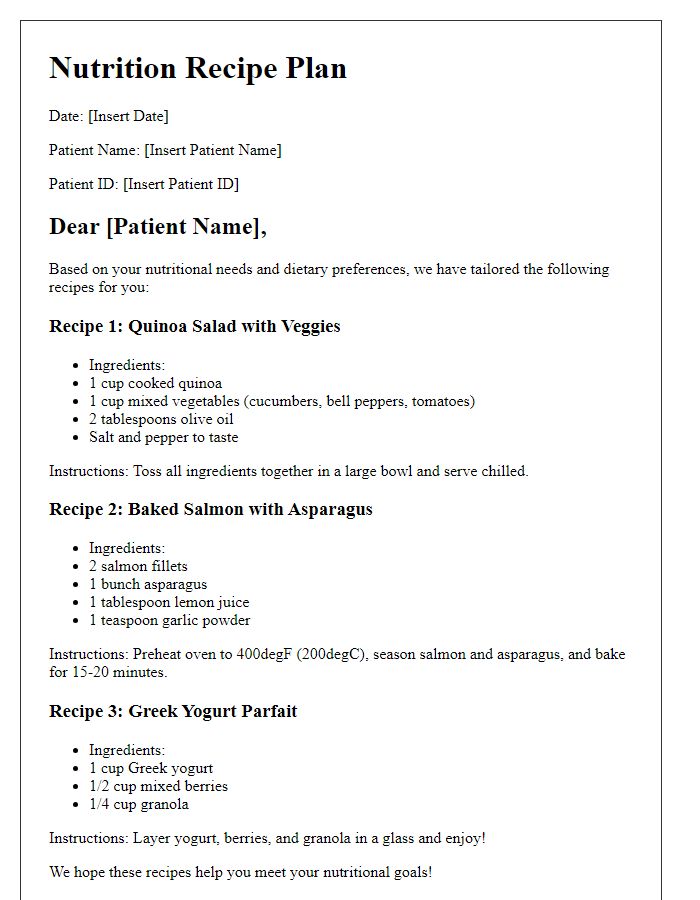
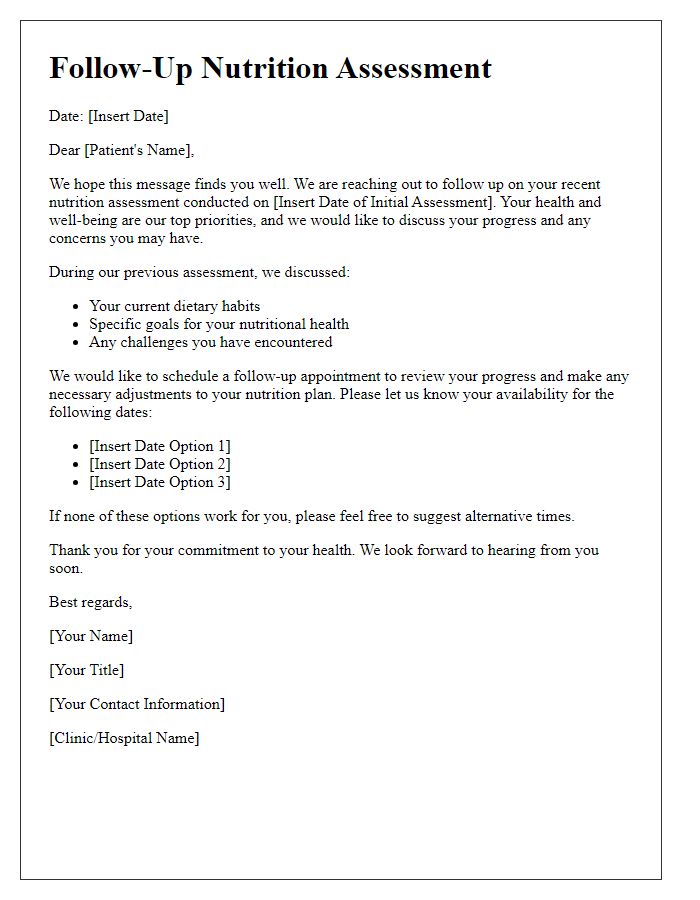


Comments